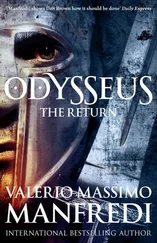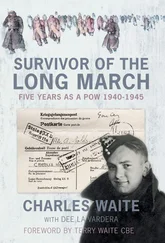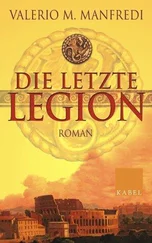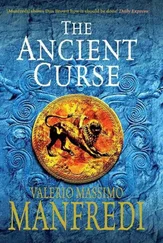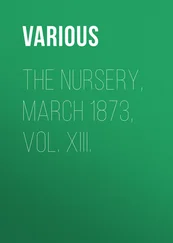Valerio Manfredi - The Ides of March
Здесь есть возможность читать онлайн «Valerio Manfredi - The Ides of March» весь текст электронной книги совершенно бесплатно (целиком полную версию без сокращений). В некоторых случаях можно слушать аудио, скачать через торрент в формате fb2 и присутствует краткое содержание. Жанр: Исторические приключения, на английском языке. Описание произведения, (предисловие) а так же отзывы посетителей доступны на портале библиотеки ЛибКат.
- Название:The Ides of March
- Автор:
- Жанр:
- Год:неизвестен
- ISBN:нет данных
- Рейтинг книги:4 / 5. Голосов: 1
-
Избранное:Добавить в избранное
- Отзывы:
-
Ваша оценка:
- 80
- 1
- 2
- 3
- 4
- 5
The Ides of March: краткое содержание, описание и аннотация
Предлагаем к чтению аннотацию, описание, краткое содержание или предисловие (зависит от того, что написал сам автор книги «The Ides of March»). Если вы не нашли необходимую информацию о книге — напишите в комментариях, мы постараемся отыскать её.
The Ides of March — читать онлайн бесплатно полную книгу (весь текст) целиком
Ниже представлен текст книги, разбитый по страницам. Система сохранения места последней прочитанной страницы, позволяет с удобством читать онлайн бесплатно книгу «The Ides of March», без необходимости каждый раз заново искать на чём Вы остановились. Поставьте закладку, и сможете в любой момент перейти на страницу, на которой закончили чтение.
Интервал:
Закладка:
The fields stretching south of the Po flew by under the hoofs of Publius Sextius’s horse as he raced down the road that unwound like a grey ribbon through the green meadows at the foot of the Apennines. The fog had dissipated and the sun shone in a clear, cold sky, its light reflecting off the snow which still covered the mountain peaks.
The swift Hispanic steed, his coat shining with sweat, was showing signs of fatigue, but Publius Sextius continued to push him on nonetheless, snapping the ends of the reins against the horse’s neck and urging him continually forward with words of encouragement.
The rest station, a low brick building with a red-tile roof, was coming into sight now. It stood near a little stream, surrounded by bare hawthorn bushes and flanked by two ancient pine trees. He slowed the horse to a walk and entered the main gate, a stone archway with a sculpted sun at its keystone. The small porticoed courtyard inside had a little fountain at its centre that poured water into a drinking trough carved from a boulder.
Publius Sextius jumped to the ground, took the copper ladle at the end of a chain and drank in long draughts, then let the horse slake his thirst as well, a little at a time so he wouldn’t catch a chill, clammy as he was with sweat. He untied a blanket from behind the saddle and covered the horse’s rump. Then he went towards a side door that led to the office of the station attendant. The man stood at the sound of his knock and let him in.
Publius Sextius opened a wooden tablet with the symbol of the Eagle and the man was quick to ask what he could do for him.
‘I need a fresh horse as soon as possible and. . something else. Does anyone else in the station have. . this?’ he asked, indicating the image carved in the wood.
The man walked to the threshold and pointed at a man intent on unloading sacks of wheat from a cart. ‘Him,’ he answered. ‘The Wrestler.’
Publius Sextius nodded. He walked towards the workman and came straight out with what he had to say. ‘I’m told I can talk to you.’
The man let go of the sack he had hauled on to his shoulders and let it drop with a thud. ‘And I’ve been told to answer you. If I want to.’
The workman certainly had the build of a wrestler, with hair shaved close to his skull, a few days’ growth of beard and thick eyebrows that joined together across his forehead. He wore a dusty work tunic and a pair of sandals worn at the heel. His hands were as big as shovels, rough and callused. There was a leather bracelet on his left wrist and he wore a studded belt at his waist. Publius Sextius sized him up, while the other man had already looked him over from head to toe.
‘All right,’ Publius Sextius began, ‘I have a restricted message that must be taken to Rome. Extremely urgent, extremely important, very high risk.’
The wrestler wiped the sweat from his brow with the back of his hand. ‘I get it. You need some runners.’
‘I need them now. This instant,’ pressed Publius Sextius. ‘I must be certain that the message gets there. . Or is there an alternative?’
‘No, but I’ll do what I can. You can go on your way, friend, no trouble.’
‘No trouble?’ replied the centurion as his mouth twisted into a sneer. ‘There is nothing but trouble, from Cadiz to the Red Sea. I’m afraid there’s a storm brewing that is about to break and it won’t subside until it has swept away everything that has been accomplished so far. We have to stop it, at any cost.’
The wrestler scowled and at the same moment a cloud covered the sun, plunging the courtyard into shadow. The sky seemed to be echoing his words.
‘What are you getting at, man? I can’t understand what-’
Publius Sextius drew in closer. ‘The message must be delivered as quickly as possible to the old guard post at the eighth milestone on the Via Cassia. The message is: “The Eagle is in danger.”’
The other man grabbed his cloak to pull him closer. ‘Almighty gods, what’s going on? What else must I tell them?’
‘Nothing more than what I’ve just said,’ replied Publius Sextius. ‘I’ll take care of the rest myself. I’ll be setting off at once. You get started on this as soon as possible. Good luck.’
As Publius Sextius was walking back towards the main building, he noticed a man sitting over on the ground, not far from them, behind one of the columns of the portico. He was slurping from a bowl of soup, his head low. He was wearing a grey cape and the hood covered his head but not his weaselly face. An ugly mug with a few straggly yellow hairs on his upper lip.
Publius Sextius rejoined the man in charge of the post, asked about his horse and exchanged a few words. A servant brought him something to eat with a glass of wine, while the stable hands prepared the new mount and transferred his baggage.
The man in the grey cape was still bent over his bowl of soup, but he hadn’t missed a word of what had been said. He watched as Publius Sextius downed the wine in a couple of gulps, jumped on to the fresh horse and rode off at a gallop. Then he set his bowl on the ground, got up and, with a steady step, went straight to the stables.
There he put a coin into the groom’s hand and asked, ‘Did you talk to that man who just rode away?’
‘No,’ replied the servant.
‘Did you hear what he said to the attendant?’
‘He asked if he’d be sure to find another horse at the next rest stop.’
‘So he’s in one hell of a hurry, then. .’
‘You said it. He didn’t even finish eating.’
‘Prepare a horse for me as well. Your best. I’ll be leaving tonight, late.’
‘He took the best one.’
‘The best of what’s left, you idiot.’
The servant obeyed at once. He prepared a sturdy-legged bay, harnessed him and took him over to the man in the grey cloak.
‘If you leave late at night,’ he said, ‘be careful. You never know who you might meet up with.’
‘Mind your own business,’ the other shot back. ‘And don’t talk to anyone if you want more of these.’
He shook the coins in his sack before returning to the courtyard, where he slumped down in the same place, leaning against one of the columns.
A convoy of carts piled high with hay, evidently for restocking the stables, entered the courtyard. The drivers were in a jolly mood and the first thing they wanted to know was whether there was any more of the wine they’d had last time. The attendant stood at the door of his office, holding a tablet and stylus, keeping an eye on the dealings and taking note of what was being sold and what the Senate and people of Rome were spending.
‘I hope this stuff isn’t damp,’ he grumbled, leaning over the carts. ‘The last load was all mouldy. I should take off more than half of what I paid you for that last lot.’
‘Blame your lazy servants, not us,’ one of the drivers replied. ‘They left it out all night because they were too tired to haul it under cover in the hayloft. This stuff is perfect, governor, dry as my thirsty throat.’
The attendant took his clue and had some wine brought out for the men, then returned to his office.
A little later another horseman arrived, this one just as out of breath as the first. He glanced around until he found the rat-faced man he was looking for. He gave Mustela the eye and they walked off together. He showed Mustela a receipt and handed him a scroll on which an itinerary was mapped out. Mustela took what he had been waiting for. Now he could continue.
Meanwhile, Publius Sextius was advancing at a gallop along the dirt border that ran alongside the paved road, the Via Emilia, in the direction of Rimini, checking the milestones as he rode to calculate how far he had to go to the next station. He’d passed this way three years earlier, marching with the boys of the Twelfth. It was with them that he had most unwillingly crossed the Rubicon. He well remembered the scenario he’d been forced to invent in order to convince his men that taking that step — against their country and against the law — was necessary.
Читать дальшеИнтервал:
Закладка:
Похожие книги на «The Ides of March»
Представляем Вашему вниманию похожие книги на «The Ides of March» списком для выбора. Мы отобрали схожую по названию и смыслу литературу в надежде предоставить читателям больше вариантов отыскать новые, интересные, ещё непрочитанные произведения.
Обсуждение, отзывы о книге «The Ides of March» и просто собственные мнения читателей. Оставьте ваши комментарии, напишите, что Вы думаете о произведении, его смысле или главных героях. Укажите что конкретно понравилось, а что нет, и почему Вы так считаете.

